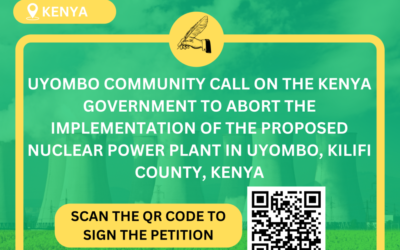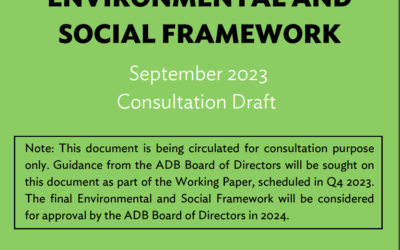Washington, DC — Today, Guyanese citizens filed the first constitutional climate case in the Caribbean to challenge fossil fuel production on the grounds that it exacerbates global warming and threatens human rights. The case, before Guyana’s Constitutional Court, claims that Guyana’s approval of a massive, ExxonMobil-led oil and gas buildout off the country’s coast violates the government’s legal duty to protect the rights to a healthy environment, sustainable development, and the rights of future generations. The case reflects a growing concern within Guyana regarding the risks oil extraction poses on a national, regional, and international level.
Guyana is ExxonMobil’s largest oil development outside of the Permian Basin. The company is pushing to extract over 9 billion barrels of oil and trillions of cubic feet of gas from ultradeep wells off Guyana’s coast. Melinda Janki, who leads the legal team for the applicants, emphasizes the project’s global significance: “Guyana’s petroleum production is a potential 3.87 gigatonne carbon bomb, putting Guyana at the forefront of the fight to save the planet from oil and gas.”
“An oil and gas industry is difficult to reconcile with [Guyana’s] international environmental commitments and the constitution,” adds Guyanese attorney-at-law Ronald Burch-Smith.
The case comes just days after the International Energy Agency warned that the world must immediately halt approvals of new oil and gas projects to keep warming below 1.5°C; less than a week after more than 100 Exxon shareholders warned that the company must align its business plans to the Paris Agreement to avoid significant risks of stranded assets; and days before Exxon’s Annual General Meeting.
“The courageous applicants in this case are taking a stand against the risks that offshore oil production poses to the local, regional, and global environments, and to the rights of present and future generations,” said Nikki Reisch, Climate & Energy Program Director at the Center for International Environmental Law. “Their case takes aim at one of the largest new oil and gas frontiers in the world, and a crown jewel in ExxonMobil’s increasingly troubled portfolio. It shows that authorizing new oil production in the midst of mounting climate chaos, the rapid decline of the fossil fuel industry, and growing threats to marine life and those who depend on it across the Caribbean, is fundamentally at odds with protection of human rights, Guyana’s own economic interests, and a safe climate future for all.”
“This case gives voice to growing public concern in Guyana about the impacts that oil production is already having, through ongoing gas flaring and outsized influence on politics, and the threats that it poses to Guyana’s marine environment, neighboring Caribbean countries, and the global climate,” adds Reisch. “Guyana’s courts have an opportunity to ensure that ExxonMobil’s relentless pursuit of the last drop of oil doesn’t come at the expense of human rights, the environment, and our collective future.”
###
Note for Editors:
Guyana sits at the epicenter of a massive new oil frontier that spans the northern coast of South America from offshore Guyana to the mouth of the Amazon in Brazil. Offshore oil discoveries in Guyana total more than 14 Billion BOE to date. Exxon is the first and biggest operator in the country and the largest stakeholder in a joint venture with Hess Oil and the Chinese National Offshore Oil Company (CNOOC-Nexen). Exxon reports 9 billion barrels of discoveries in Guyana, along with trillions of cubic feet in natural gas, making Guyana Exxon’s largest global oil play outside the US Permian basin. Statements by company executives make clear the country is critical to the company’s future growth prospects.
Exxon’s Petroleum Production Agreement with Guyana requires the country to repay the company for substantially all exploration and development costs; shifting the risks to development to the people of Guyana.
As a result, the development of these reserves exposes Guyana’s people and economy not only to the climate impacts of greater fossil fuel combustion but to the profound risk of tying the country’s future development to oil at a moment when the industry faces urgent, necessary and inevitable decline. With its capital city lying below sea level and its economy among the weakest in the Americas, Guyana is uniquely vulnerable to both risks.
The legal action is being filed by two Guyanese citizens: Dr. Troy Thomas, a scientist and university lecturer, and Quadad de Freitas, an Indigenous youth from South Rupununi.
Previously, the United Nations Human Rights Committee asked Guyanese authorities to respond to concerns that the nation’s expansion into oil and gas production will adversely impact human rights, including the rights of the most vulnerable groups.
Media contact: Cate Bonacini press (at) ciel.org
Source: CIEL



0 Comments